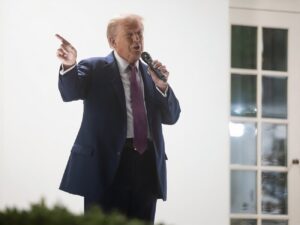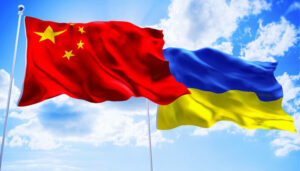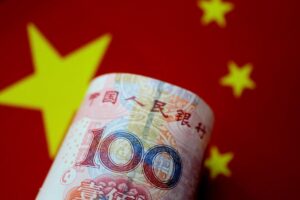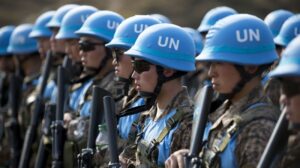
According to Chinese media reports, US President Donald Trump’s visit to China may take place in late October or early November. According to the South China Morning Post, the Chinese government sent Trump an invitation in early September, which usually means that preparations are already in the final stages. SCMP sources also claim that both sides are already working out the details of the trip: there are still “some minor issues” to be resolved, but the main obstacles have been removed.
It is believed that the visit may be timed to coincide with the Asia-Pacific Economic Cooperation (APEC) summit, which will be held in South Korea from October 31 to November 1.
ASEAN (Association of Southeast Asian Nations) is an intergovernmental organization that has existed since 1967, designed to promote economic growth, social progress, and cultural development in the countries of the region, as well as to strengthen regional stability and cooperation.
The members of ASEAN are: Brunei Darussalam, Cambodia, Indonesia, Laos, Malaysia, Myanmar (Burma), the Philippines, Singapore, Thailand, and Vietnam.


The attitude of Ukrainians toward China remains complex and controversial: a neutral position prevails, but among those who have decided, negative assessments significantly outweigh positive ones. This is evidenced by the results of an all-Ukrainian survey conducted by Active Group in cooperation with the Experts Club information and analytical center in August 2025.
According to the survey, 44.7% of Ukrainian citizens expressed a neutral attitude toward China. At the same time, 40.7% of respondents indicated that their assessment was negative (30.0% – mostly negative, 10.7% – completely negative). Only 12.0% of Ukrainians have a positive attitude toward China (8.3% – mostly positive, 3.7% – completely positive). Another 3.0% of respondents admitted that they did not know enough about the country to express their own opinion.

“Negative attitudes toward China among Ukrainians are primarily related to its foreign policy stance, which many people find ambiguous in the context of global events. However, the economic factor is extremely important: in the first half of 2025, China remained Ukraine’s No. 1 trading partner. Our exports to China amounted to more than $846 million, while imports exceeded $8.1 billion. This means that China’s influence on the Ukrainian economy is extremely significant, and it is simply impossible to ignore it,” said Maksym Urakin, founder of Experts Club.
In his turn, Oleksandr Poznyi, co-founder of Active Group, drew attention to the importance of separating economic interests from public perception.
“The survey shows that Ukrainians are not ready to unequivocally perceive China as an ally. For many, it remains an alienated state, and a significant share of negative assessments is explained by the global political context and lack of trust. At the same time, economic cooperation is so extensive that it could become the basis for a gradual change in public opinion in the future,” he added.
The poll is part of a broader study that analyzes international sympathies and antipathies of Ukrainians in the current geopolitical environment.
The full video can be viewed here:
https://www.youtube.com/watch?v=YgC9TPnMoMI&t
You can subscribe to the Experts Club YouTube channel here:
https://www.youtube.com/@ExpertsClub
ACTIVE GROUP, CHINA, DIPLOMACY, EXPERTS CLUB, Poznyi, SOCIOLOGY, TRADE, URAKIN

China’s foreign exchange reserves, the world’s largest, increased by $29.9 billion (0.9%) in August compared to the previous month and amounted to $3.322 trillion, the People’s Bank of China said in a statement. That’s the most since December 2015.
The yuan appreciated 0.9% against the U.S. currency last month. Meanwhile, the U.S. dollar fell 2.2% against a basket of major world currencies.
Gold reserves stood at 74.02 million ounces at the end of August, up from 73.96 million ounces a month earlier. The Chinese Central Bank bought precious metal for the tenth month in a row. In value terms, gold reserves reached $253.84 billion against $243.99 billion at the end of July.
The Chinese economy continues to maintain stable growth, showing resilience and vitality, which helps to keep the country’s foreign exchange reserves at a stable level, said the State Administration of Foreign Exchange Control of the People’s Republic of China.

China has taken a new step in the race for leadership in future communications technologies. Scientists from Peking University and City University of Hong Kong have developed the world’s first universal 6G chip, which is capable of delivering data transfer speeds of over 100 Gbps and operating at any frequency in the range from 0.5 to 115 GHz. This was reported by the South China Morning Post and Interesting Engineering, citing a publication in Nature magazine.
The finger-sized device (11×1.7 mm) allows you to download, for example, a 50 GB 8K video in a matter of seconds.
The modem uses a photon-electron architecture, which allows different frequency bands to be combined into a single system.
The development solves a key problem for future 6G networks: spectrum fragmentation. Currently, equipment is created separately for “low,” “medium,” and “millimeter” frequencies, which complicates implementation. The new chip is universal and can be used both in rural areas (for low-frequency coverage) and in megacities (for ultra-fast connections at high frequencies).
Prototypes that transmitted data at a speed of 100 Gbit/s over limited distances were previously demonstrated in Japan, and an experimental 6G network was launched in China in 2024. However, it is the Chinese universal modem that has covered the entire frequency range for the first time, making it unique.
The next step is to integrate the technology into compact USB-format modules and adapt it for smartphones, base stations, and Internet of Things devices. This will bring us closer to the mass adoption of 6G, which experts expect in the 2030s.
China is cementing its leadership in 6G development by offering the world a unique solution that could change the landscape of mobile technology. The breakthrough universal modem opens up opportunities for a digital revolution — from medicine to the entertainment industry.

China will take measures to reduce steel output in 2025-2026, Reuters writes, citing an informed source and an official document from the ministries of industry, environment and others it has consulted. According to the document, the world’s largest steel producer will also severely limit new capacity.
“The steel industry has faced overcapacity and insufficient effective demand, resulting in a supply-demand imbalance affecting the quality and efficiency of development,” the document said.
The document does not set production reduction targets. However, it notes, such reduction will be achieved by closing obsolete and inefficient furnaces and supporting the development of advanced enterprises.
At the same time, it plans to increase the industry’s value-added by 4% per year, invest in new technologies and encourage the use of steel in housing and infrastructure construction.
Beijing will also strengthen measures to ensure stability in the cost and supply of raw materials, including iron ore and coking coal, and take steps to strengthen the management of steel exports, the document said. An informed source confirmed the authenticity of the document and said it was the latest version.

German newspaper Die Welt, citing EU diplomats, reports that Chinese authorities have confirmed their readiness to participate in a peacekeeping contingent for Ukraine.
However, it is emphasized that the government in Beijing will be ready to do so “if the peacekeepers are deployed on the basis of a United Nations mandate.”
“In Brussels, Beijing’s plan has met with a mixed reaction. On the one hand, it is said that the inclusion of countries from the Global South, such as China, could make the deployment of foreign troops for peace monitoring more acceptable,” Die Welt writes.
“However, on the other hand,” the publication continues, “there is also a danger that China will primarily want to spy on Ukraine and take a clearly pro-Russian position instead of a neutral one in the event of a conflict,” said a senior EU diplomat familiar with the ongoing discussions.